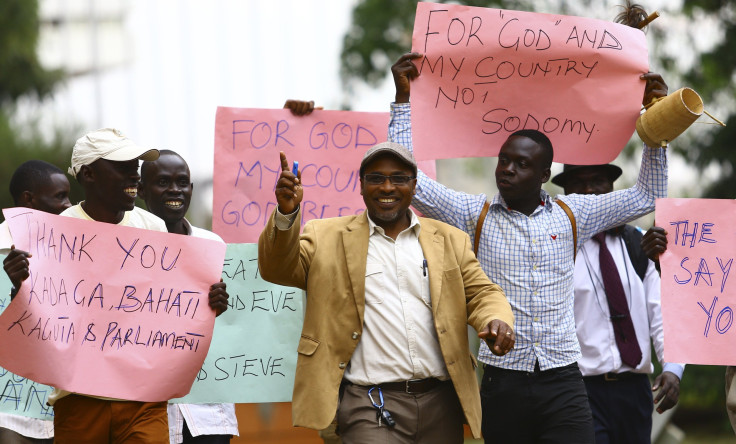World Bank Postpones $90M Aid To Uganda Because Of Anti-Gay Law; Ugandan Government Says It Does Not Care About Western Aid

The World Bank's decision Friday to postpone a $90 million loan for Uganda after the country passed anti-gay laws drew a defiant response from its government on a micro-blogging site, stating it did not need Western aid to function.
"We have postponed the project for further review to ensure that the development objectives would not be adversely affected by the enactment of this new law," David Theis, a spokesperson for World Bank, reportedly said in an email, according to Reuters.
Uganda’s anti-gay law, which was enacted earlier this week, imposes a life sentence for certain violations with regard to homosexuality and has termed it a crime not to report the violation. A local newspaper reportedly also published a list of names of people who were homosexuals and were to report to the government, the day after the law was passed.
“The west can keep their 'aid' to Uganda over homos, we shall still develop without it,” Ofwono Opondo, a spokesperson for the Ugandan government, said Friday on the micro-blogging site Twitter, in support of the law signed by Ugandan President Yoweri K. Museveni on Feb. 24. “Slave trade, slavery, colonialism, imperialism, and exploitation, Africa must stand up to Western domination,” Opondo added.
The World Bank is financing $1.56 billion worth of projects in Uganda and counts it as one of the poorest countries in the world, and the $90 million loan was aimed at supporting health initiatives. Foreign aid accounts for about 13 percent of Uganda’s gross domestic product. The Ugandan shilling had gained nearly 3 percent since the start of 2014, but fell about 2.4 percent this week, according to Reuters data.
“Even if part of this (13 percent) is cut, it would mean that Uganda would be unable to finance its fiscal deficit without issuing more debt to the private sector, which of course raises concerns over their ability to pay. It’s therefore no surprise that the shilling has weakened since the announcement,” according to Shilan Shah, Africa economist at Capital Economics.
Western countries have reacted strongly to Uganda's new law, with Denmark and Norway pulling back or redirecting aid away from Uganda's $90 billion economy, according to Bloomberg. Denmark will withhold $9 million in investments in private projects while Norway will withhold $8 million in development aid. The U.K. will also reportedly redirect $163 million in aid through alternative routes instead of passing it through the government.
World Bank President Jim Yong Kim, in an opinion piece for the Washington Post Friday, expressed concern about the more than 80 countries that have passed laws against homosexuals. Nigeria passed a law last month to punish homosexuality with a 14-year prison term.
“There is clear evidence that when societies enact laws that prevent productive people from fully participating in the workforce, economies suffer,” Kim wrote, adding: “Legislation restricting sexual rights, for instance, can hurt a country’s competitiveness by discouraging multinational companies from investing or locating their activities in those nations.”
Richard Branson, in an interview with CNN on Feb. 25, reportedly called for a boycott of the country by businesses. “I don’t want to spend money in Uganda. I would rather spend money in countries that treat their people decently,” Branson reportedly said.
© Copyright IBTimes 2024. All rights reserved.












